"Essential Brooklyn" is an 8-part series spotlighting the people and organizations working overtime to lift up their communities through the COVID-19 pandemic. These are the ones who give the most with the least resources. They're our true essential workers, our community anchors; the ones who often go unnoticed, until you need them.... The ones who have been there for us all along.
As boxes of tomatillos, chilis, eggs, cilantro and black beans were unloaded into the Trinity Lutheran Church carpark early on Saturday morning, Mixteca Executive Director Lorena Kourousias waved them in, smiling.
The delivery was being added to 180 food boxes donated by GrowNYC that Mixteca was distributing to neighbors the organization knew were in desperate need.
"We want to compliment the food boxes with Mexican ingredients because we want our community to feel as normal as possible," Kourousias said. "This situation is putting on a lot of stress, and it's triggering a lot of trauma, a lot of historical trauma."
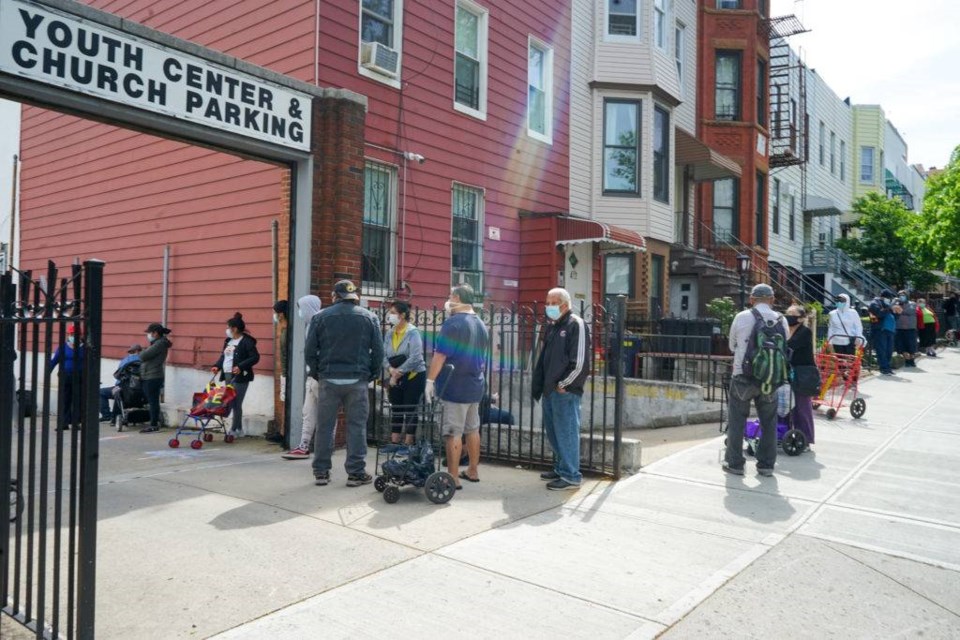
"This situation is putting on a lot of stress, and it's triggering a lot of trauma, a lot of historical trauma."
The effects of the coronavirus pandemic are disproportionately hurting immigrant communities, with many families facing a shortage in food, supplies and money for rent, after largely being excluded from pandemic relief packages and confronting longstanding systemic discrimination.
By 9:00am, there was a line snaking out of the church carpark and around the corner as folks came to collect the weekly offering of groceries. Mixteca had a list of those most in need, but that did not cover the many who turned up and were added to the waitlist in case there were leftovers.
Starting from scratch
Twenty years ago, immigrants from Central and South America who settled in Sunset Park started Mixteca to support the underserved immigrant community. A big issue they faced then was educating people around HIV, which was making its way to small towns in Mexico through the community. Kourousias said there were parallels now with the novel coronavirus, with people who were infected with the virus and had lost everything returning to Mexico. The key to stopping this was education and support, she said.
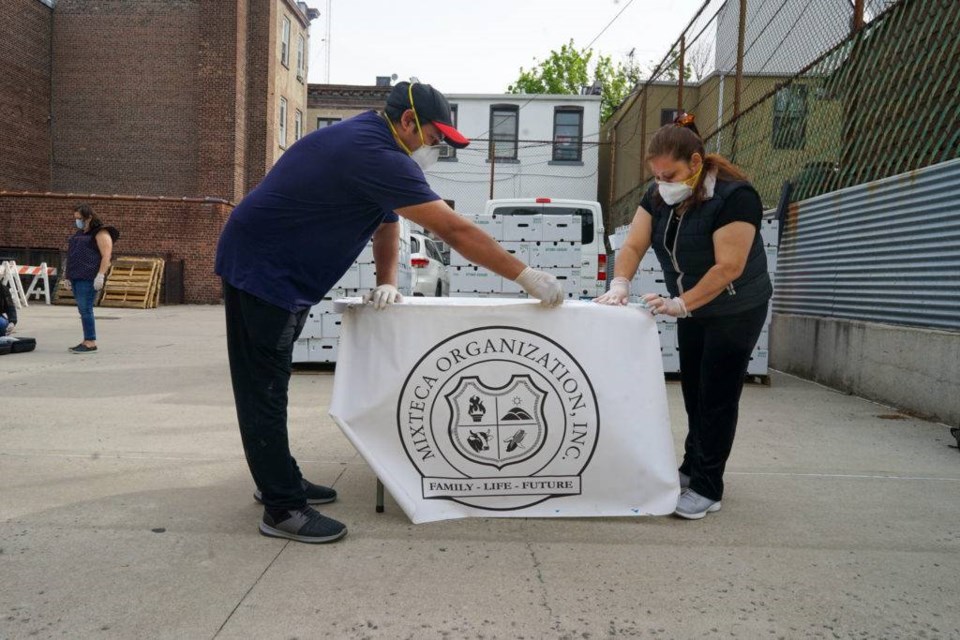
Mixteca provides services and programing based around education, immigration, legal help, health, and mental health. The aim was to assist the community in reaching sustainable economic and social development. But right now, the organization was focused on basic survival: handing out food and prepaid visa cards, and answering an unending list of anxiety-ridden questions.
"We're doing what we can, but the need is huge," Kourousias said. "We know our community members were living off their pay and now they are out of work for two months. The situation is only getting worse."
Kourousias said immigrants who had been in the community for more than 30 years were facing the same injustices and issues of those who had just arrived from the border.
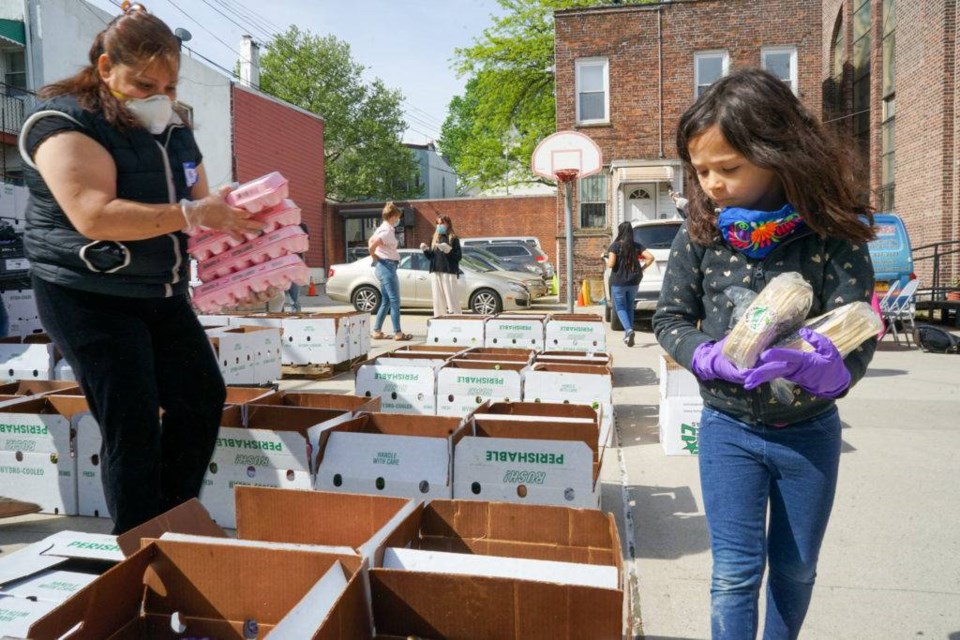
"Our community is pushed to work, they haven't received any support, anything, and they have no resources."
Mixteca also advocates for those being exploited by the situation. She said last week, they heard of one case where a family from New York City took their nanny to Florida to work during the pandemic, and she got infected with the virus. The family left her at a hospital with no connections or pay, and when she was able to get back to Brooklyn she infected her husband who then passed away. She said that was just one of many cases Mixteca was fighting, and the level of injustice they saw was huge.
Changing narratives in changing neighborhoods
In the warm morning sun she lamented the rising property prices in Sunset Park, how families who had been there for years were being pushed out, and how the energy of the neighborhood was at risk from all-too-familiar tales of changing demographics.
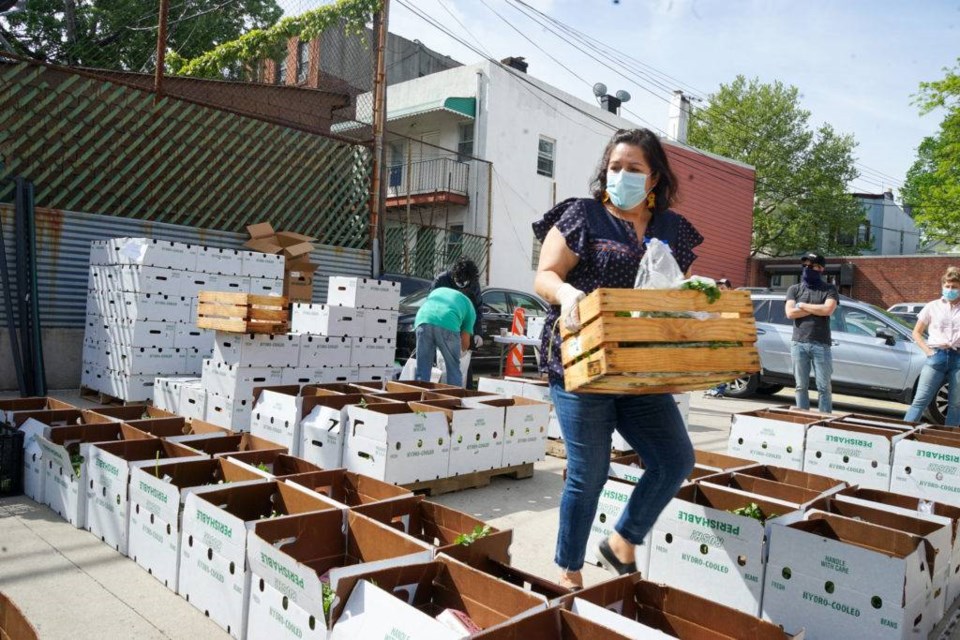
In the back, volunteers formed a makeshift assembly line to move the beans and extra supplies into boxes, as the queue continued to grow. A table was set up to help folks fill out Census forms; and two young volunteers sat there ready to answer questions. Kourousias said the organization represented the community it served.
"We want to really change the narrative about immigrant communities: We are hard-workers. I'm an immigrant, and I am leading this organization proudly with this face," said Kourousias .
"We are not someone from outside trying to say 'Oh the best thing for you to do is this.' We listen to our community's needs and we are part of it. We are really focused on our community in Sunset Park, our indigenous community, people that don't have another place to go--Mixteca is their second home."
That showed in the church's parking lot stamped with colorful chalk drawings acting as social distancing markers and bright serapes covering fold out tables and wooden pallets.
Serving as a voice for those in the shadows
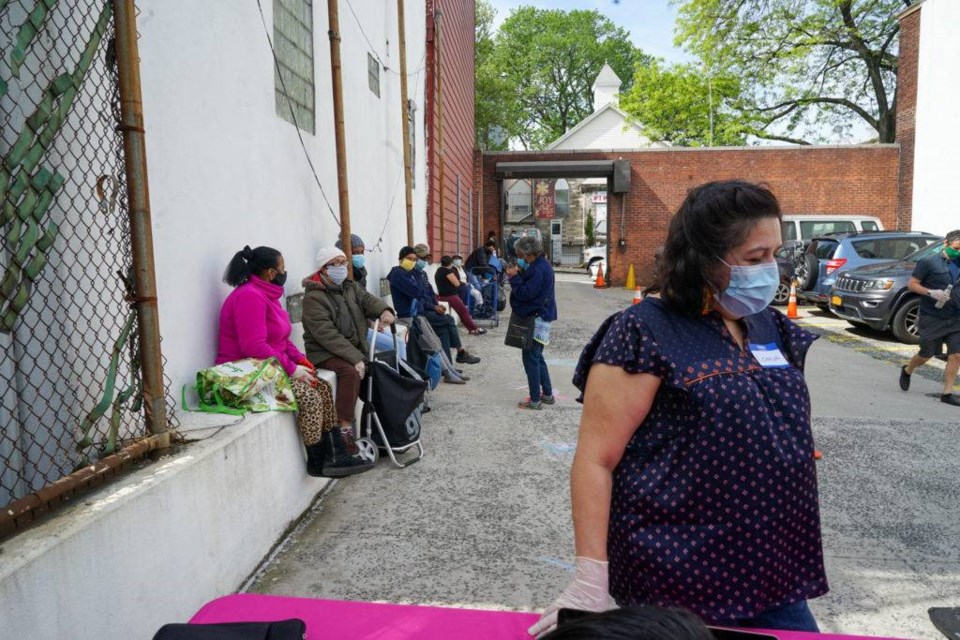
In-between telling volunteers where to place things, and waving people in, Mixteca's immigration program coordinator Nicole Rojas described how her role had morphed with the pandemic and now included coordinating the Saturday food drives and helping with Mixteca's midweek deliveries.
Rojas said she had been receiving a huge number of calls and messages from folks stressed about lacking food and income, but also with logistical questions around getting bodies back to Mexico; what to do about DACA renewals, and how to access healthcare.
"People were already scared to go to the doctor and they continue to be. It's difficult," said Rojas. "Folks are passing away in their homes and not going to the hospital for fear of being denied."
"I feel that if I have some sort of privilege I have to use it, to voice their rights for them,"
Rojas last month organized a Mother's Day self-care Zoom workshop. She was asked to do it twice, because of the demand. Through the workshops, Rojas found many women in the community were struggling with mental health issues and the stress of navigating their new situation. After the women talked things through, Rojas was able to connect them with social workers and mental health services.
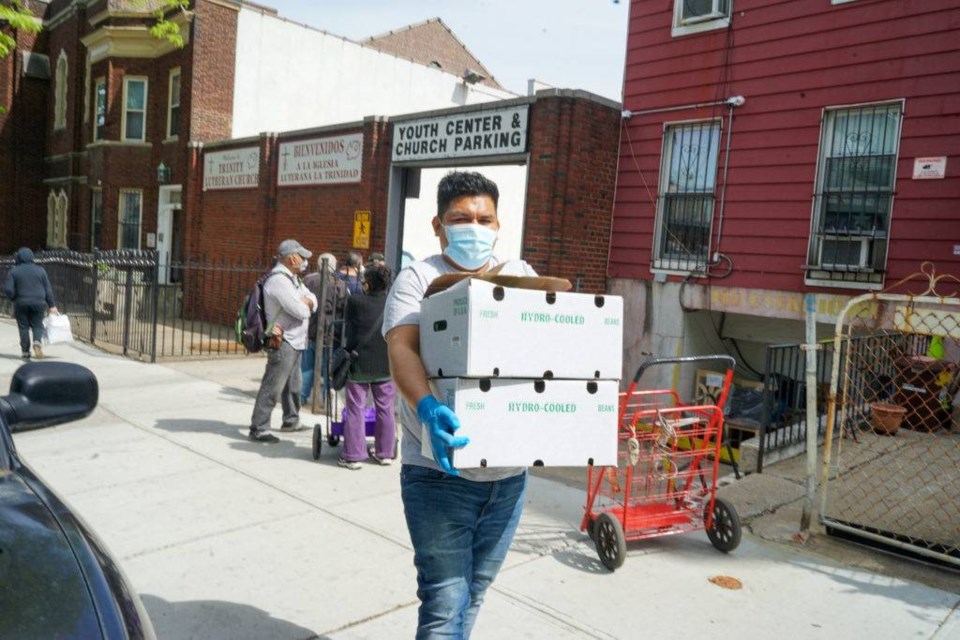
Rojas said she came from a mixed status home and knowing the lack of resources immigrants had access to motivated her to keep going during the stressful time, "I feel that if I have some sort of privilege I have to use it, to voice their rights for them," she said.
Kourousias added, "Every time I walk on the street I feel like people are ready to work as a community and fight together for their rights, and to fight for the people that are not able to fight for themselves," she said.
"When I walk down Fifth Avenue I feel a little piece of Mexico is there all the time, I love that part, I love the vibe of my people."



